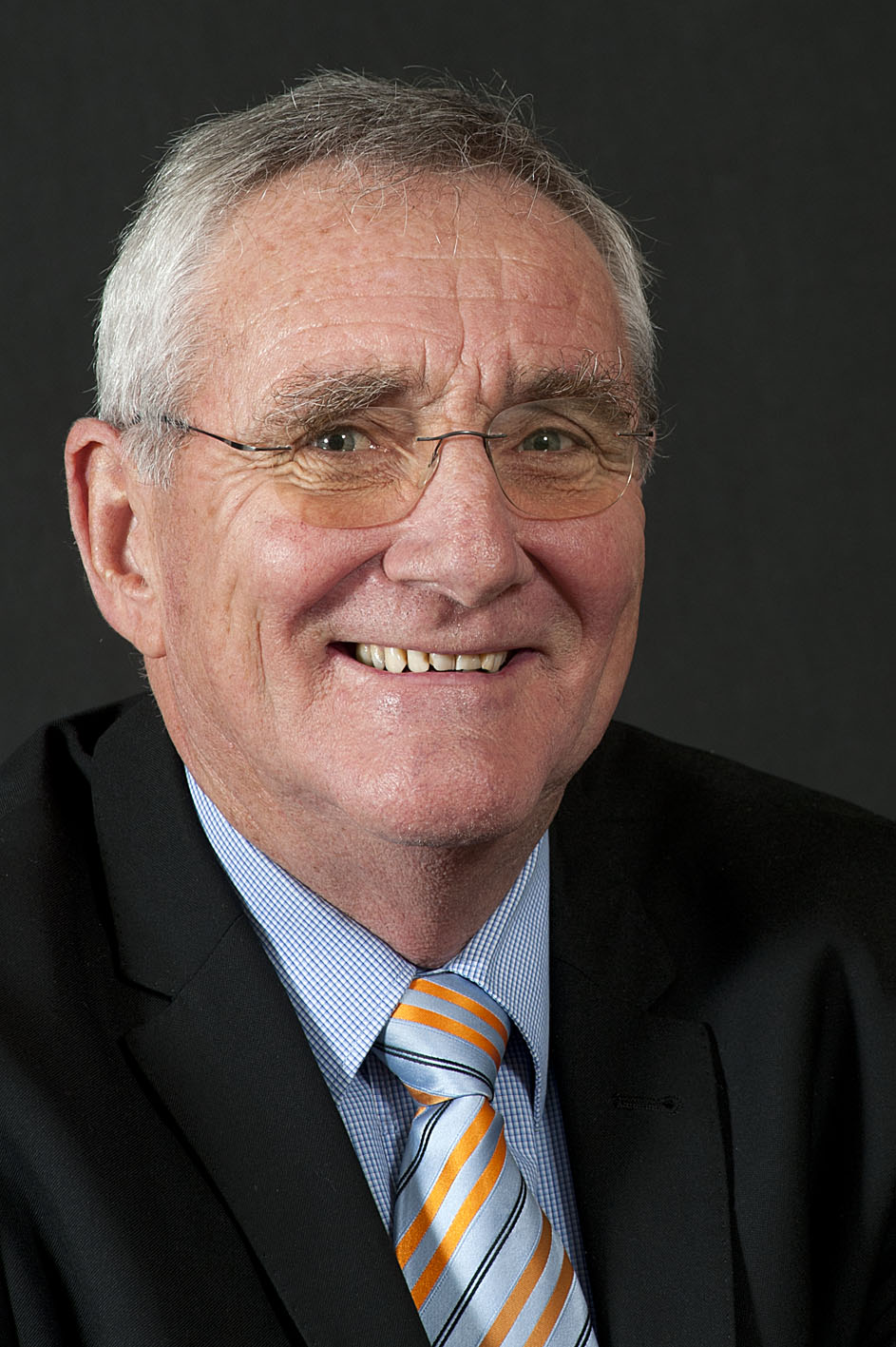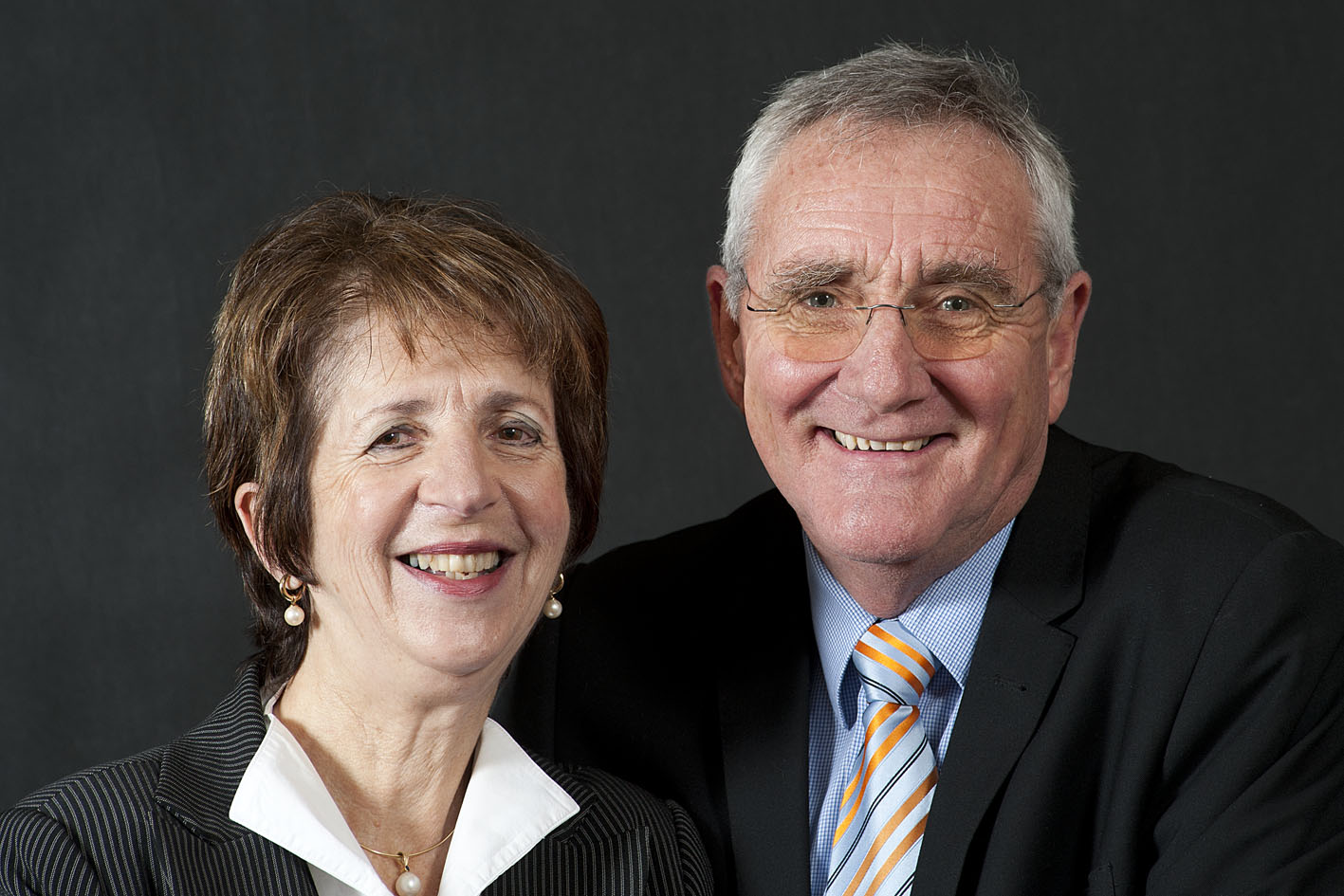|
WELCOMING ADDRESS BY INCOMING 2012/2013 PRESIDENT CLIVE WEEKS
Thank you for choosing me as your President for 2012-2013. It is a great and unexpected honour to lead our great Club. I hope I am able to demonstrate adequate leadership to do justice to the confidence you have in me.
More than ever before Rotary needs to focus on renewed efforts to bring equality, peace and justice to our society, to our country and to the world. This can best be achieved by building on past achievements and this very much applies to our Club. Continuity of direction and in the approaches we take, whilst at the same time changing to meet the needs of a fast moving world, is a constant message from Rotary International. We must be prepared to make measured, sensible changes rather than continue without recognition of the change that is occurring around us.
At a Club level success can only be achieved by building on the Strategy and Action Plans of past years. The review and updating of last year’s plans to meet current circumstances and the development of new initiatives forms the basis of this year’s Strategy and Action Plans, and provides the platform for succession planning and continuation of initiatives from this year to the next.
The Rotary International theme for 2012-13 is “Peace Through Service”. We all strive for personal satisfaction and happiness – and what better way of achieving this than by providing service above self to those less fortunate in our society and throughout the world? By adopting The Object of Rotary, by adhering to Rotary’s Core Values (Service, Fellowship, Diversity, Integrity and Leadership), by applying the “Four Way Test” and by targeting the Five Avenues of Service (International, Vocational, Community, New Generations and Club Service) we can bring about change to make our society and the world a better place. So let us embrace the RI theme as our Club theme for 2012-13, to which I want to add a small word, but one that is crucial to our enjoyment of Rotary- fun.
As a volunteer organisation our fun is derived through the satisfaction gained by providing service to others and by the friendships developed and interaction with other Rotarians during volunteering and other events. Also this year the intention is to increase the number of Fellowship Groups to include Interest Groups as well as Geographic Groups and based on the responses received a number of new groups are likely to be formed.
Over the past year, under the Horizons Committee, four Areas of Focus were pursued to assist in implementing the RI Innovation and Flexibility Pilot, for which our Club was selected. These were in the areas of Corporate Membership/Partnership, Membership Engagement, e-Communications and Club Structure. Our Action Plan for the coming year is focussed on progressing the implementation of the recommendations from the Horizons Committee, whilst at the same time continuing the numerous projects and activities comprising our previous good works, including continuing our partnerships with the Brotherhood of St Laurence, HomeGround Services and the Skin and Cancer Foundation/Rotary Dermatology Research Centre.
Our Club undertakes a significant number of projects, events and activities. A list of Partnerships, Projects and Activities/Events, together with Project Leader/Champion, is now on the website and will be listed in the Club Directory. It will be used to continue to simplify the Club structure, with an emphasis on Teams rather than Committees, and to make known to the whole membership the complete range of areas where service can be provided. Every member is encouraged to examine the list and become involved in those projects and activities that interest them.
The above indicates that there is plenty of activity “in” the Club, but there remains significant work to be done “on” the Club, particularly in the areas of Board simplification, portfolio allocation and risk management, membership engagement and retention, membership growth and fundraising. These will be the key areas of focus for the Board over the coming year along with ongoing initiatives in succession planning, and education of members.
An increase in the number of Members and better Member engagement is one of the key goals for this year. Significant progress has been made by the Corporate Membership/Partnership Innovation and Flexibility Pilot. The Club’s Rules have been changed to permit up to 5 % of Club membership to comprise Corporate Bodies with up to four designees each. The goal is to have six Corporate members by March 2013, with up to 20 Designees, in addition to inducting 20 new individual Members over 2012-13. New individual Members can only be attracted if we invite potential members (colleagues, neighbours, professional service providers and friends etc) to lunch with the aim of asking them to join the Rotary Club of Melbourne if there is interest. Surely it is not too much to ask each member to bring one potential member to lunch over the next 12 months?
The Horizons Committee also examined how Rotary measures involvement and has developed new rules that have been passed at General Meetings. This will allow all significant activities associated with your engagement with Rotary to be considered as equivalent to meeting attendance. A key objective is to encourage Members to become more involved in Club activities, to recognise and record this, as well as improving Member retention by better meeting the aspirations Members have in joining and remaining with a Rotary club. A new engagement and recording system is being implemented to support this initiative.
The e-Communications Working Party recommended that the website be refreshed and this has been done. It also recommended that enhanced use of the website be made and a number of initiatives are in progress including:
- Use of social media - a Club Facebook page and Club LinkedIn page pointing to the Club’s main website, developing a Twitter following via LinkedIn, and a You Tube channel to showcase Club projects.
- Making better use of the website functionality to accept online Membership Applications and Referees supporting statements, accept donations to the Club’s Trusts, accept Membership subscriptions, to register and accept payment for major Club events and provide a free subscription service to the Club’s website allowing stakeholders to join as Subscribers with controlled access.
A further initiative to be progressed is to support the District in the formation of the Rotary e-Club of Melbourne. This will be a hybrid club with a combination of virtual and face to face meetings and activities, and it is expected to be chartered by the end of 2012. In addition it is intended to continue to work closely with District and develop initiatives with other Clubs in the Batman Cluster.
A Club Vision Facilitation workshop, run by experienced District Facilitators, is programmed for August, 2012. This will provide the opportunity for all Club Members to complete a prior questionnaire on future directions of the Club, with a representative cross section comprising 50 plus members attending the workshop. The aim is to define our Club’s Vision, and the steps necessary to achieve that Vision.
All of the above is a continuation of the change the Club has been going through. It is nothing we should fear or hold back on - we are really only proposing to do better many of the things we already do well, and at a pace that does not cause disruption. The aim is to strengthen Rotary in general and the Rotary Club of Melbourne in particular.
I look forward to your support and working with you to achieve our aims over the coming 12 months.
Clive Weeks
President 2012/2013
ABOUT PRESIDENT CLIVE WEEKS
Clive Weeks was born in Elmore in 1948 and grew up at Runnymede East between Elmore and Colbinabbin. He attended Primary School at Runnymede East and Secondary School at Rochester High until year 11 when he transferred to Bendigo Technical College where he completed a Diploma of Civil Engineering in 1966. In 1967 he entered the 3rd year of a BE Degree at Monash University as a “block exemption” student and completed the final two years of his Bachelors Degree before gaining a Hunter District Water Board scholarship to complete a Master of Engineering Science Degree at Monash. His Masters Degree by full thesis entitled “An Evaluation of the Factors Affecting Residential and Industrial Water Use” was awarded in 1972. During his studies he gained vacation experience at various shires in Northern Victoria including the Shires of Gordon (Boort), Walpeup (Ouyen) and Waranga (Rushworth).
From early 1971 to September 1972 he lectured in hydraulics, hydrology, stormwater drainage, water supply and structural design at Swinburne Technical College before joining Gutteridge Haskins and Davey (GHD).
During the next 37 years He held at least 14 positions with GHD (based in Melbourne unless otherwise noted) including:
Design Engineer
Resident Engineer Construction Mornington Wastewater Control Centre (Frankston)
Resident Engineer Operations Mornington Wastewater Control Centre (Frankston)
Design Co-ordinator Mt Arthur North Coal Mine (Sydney)
Manager of GHD’s Western Victorian practice including its Horsham Office
Chief Civil Design Engineer
Regional Director GHD’s Northern Territory practice (Manager Darwin Office)
Superintendent and Project Controller Melbourne Cricket Club Great Southern Stand Redevelopment
Director Technical Services and Manager Victoria
Director Personnel and Manager Victoria, Tasmania and South Australia
Director and Chief Executive Officer
Executive Chairman
As indicated above Clive’s work was mainly associated with major infrastructure projects. Those of note on which Clive played a leading role include sewerage systems for developing areas on the Mornington Peninsula, the Mornington Wastewater Control Centre, Mt Arthur North Coal Mine, Stawell No7 Water Storage, a number of road, water supply and sewerage systems and treatment plants throughout Australia, the Great Southern Stand at the MCG, Melbourne City Link and Eastlink.
During his time as CEO and Executive Chairman of GHD, GHD’s turnover increased from just under $200m to nearly$1000m whilst maintaining historical margins. Worldwide staff number grew from 1400 to 6500 and new businesses were established in China, United States, Chile, England, Ireland, a number of Asian countriesand the United Arab Emirates.
Clive retired from GHD early in 2009 and currently is a Board Member of the Regional Rail Link Authority and since 2005 the Monash Engineering Foundation. He was awarded the Sir John Monash Medal for services to the Monash Engineering Faculty in 2011.
He joined the institution of Engineers as a Student Member and is now a Fellow. He is also a Fellow of the Institute of Company Directors and the Australian Academy of Technological Sciences and Engineering (past Victorian Committee Member), and a Member of the Australian Water Association.
Clive first joined Rotary in Darwin and was inaugural Director Vocational Servicesfor the Darwin Sunrise Club in 1990. He joined Melbourne Rotary in 1999 and has been a member of the Community Welfare and RCM Community Foundation Committees. He chaired the Community Foundation Committee for the past two years when the goal $20m by 2020 was set. He is a Special Friend of the Community Foundation by both donation and bequest and has been named by The Rotary Foundation as Paul Harris Fellow Saphire.
Clive has been married to Helen for 40 years. For many years Helen was a primary school teacher before teaching English as a second language to adult migrants and school age pupils. They have three adult sons (an Anaesthetist, a Civil Engineer and a Solicitor), three lovely daughter-in-laws and the five best grandchildren aged between one and six.
Apart from family and looking after personal affairs Clive’s other interests include travel, spectator sports including AFL (Carlton), golf, walking, photography, wine, and getting away to holiday homes at Metung and Mt Martha.
|